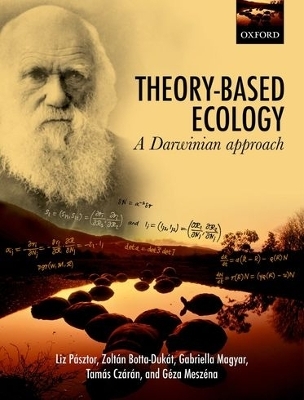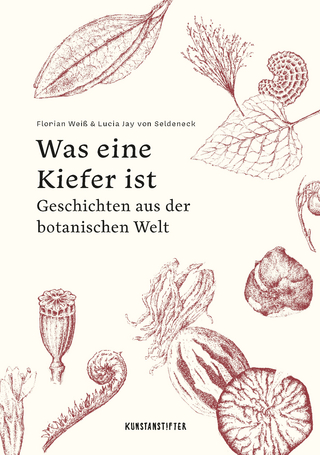
Theory-Based Ecology
Oxford University Press (Verlag)
978-0-19-957786-6 (ISBN)
Ecology is in a challenging state as a scientific discipline. While some theoretical ecologists are attempting to build a definition of ecology from first principles, many others are questioning even the feasibility of a general and universal theory. At the same time, it is increasingly important that ecology is accurately and functionally defined for a generation of researchers tackling escalating environmental problems in the face of doubt and disagreement. The authors of Theory-Based Ecology have written a textbook that presents a robust, modern, and mathematically sound theory of ecology, maintaining a strong link between empirical data, models, and theory. It is firmly based in Darwinian thought, since it was Darwin who first revealed the ecological principles of the origin of species, and gave the evolution of diversity a process-based, mechanistic explanation.
The authors base their synthetic theory of Darwinian ecology on seven key principles: exponential growth, growth regulation, inherited individual differences, finiteness and stochasticity, competitive exclusion, robust coexistence, and constraints and trade-offs. Within this solid conceptual framework, they integrate classic and actual empirical knowledge from ecology and evolutionary biology, clarifying methodological and mathematical detail in clear and helpful text boxes. A wealth of illustrated examples pertaining to different organisational levels (alleles, clones and species) helps to explain how the principles operate.
This is an invaluable resource for graduate level students as well as professional researchers in the fields of ecology, genetics, evolutionary ecology, and mathematical biology.
Liz Pásztor is an evolutionary ecologist with broad interests in understanding the structure of ecology and evolutionary biology. She had graduated in biology and philosophy at Eötvös University (Budapest) where she got her PhD in 1997 and habilitated in 2010. She has been giving lectures and held seminars in population biology, evolutionary biology, biostatistics and evolutionary ecology since 1982. She has contributed to the theory of life-history evolution by developing density-dependent optimisation models for the understanding of geographical variation of clutch-size and fecundity and run experimental studies on parental care of great tits observed by automated weighing their nest-boxes. She is a co-editor and author of a general ecology textbook for BSc students (in Hungarian). Zoltán Botta-Dukát has taken MSc degree in Agrochemistry and in Nature conservation, followed by a PhD in Botany. His research focused on phytosociology, community ecology and invasion biology. Recently he is a Senior Researcher at the MTA Centre for Ecological Research. His current research topic is investigating the trait-based rules of community assembly. He is Editor-in-Chief of Acta Botanica Hungarica and associate editor of the Journal of Vegetation Science. Tamás Czárán had studied biology at Eötvös University, Budapest, where he graduated in 1984 and got his PhD in 1991. He started his career as a theoretical ecologist mainly interested in spatially explicit population dynamical modelling, with his field of research later extended to evolutionary biology. At present the main fields of his interest are modelling microbial ecology and evolution, origin of life studies related to the RNA-World concept of prebiotic evolution, and modelling the prehistoric coevolution of human cooperation and language. Gabriella Magyar graduated from the Eötvös Loránd University, Budapest and made her Ph.D in plant ecological modelling at the same University. As a part of her Ph.D she had a scholarship at the Radboud University Nijmegen doing modelling for the department of Experimental Plant Ecology. She is especially interested in the effects of spatiality and finiteness on population patterns. Géza Meszéna graduated with a degree in Physics, followed by a PhD in Biophysics. Currently is Associated Professor at the Department of Biological Physics, Eötvös University and works on theoretical ecology and evolution. He contributed to the development of adaptive dynamics theory. His current interest is coexistence/niche theory and theory of speciation.
PART I INTRODUCTION; PART II EXPONENTIAL GROWTH; PART III REGULATION OF POPULATION GROWTH; PART IV FINITENESS AND DIVERSITY
| Erscheinungsdatum | 24.05.2016 |
|---|---|
| Verlagsort | Oxford |
| Sprache | englisch |
| Maße | 190 x 246 mm |
| Gewicht | 748 g |
| Themenwelt | Naturwissenschaften ► Biologie ► Botanik |
| Naturwissenschaften ► Biologie ► Evolution | |
| Naturwissenschaften ► Biologie ► Ökologie / Naturschutz | |
| Naturwissenschaften ► Biologie ► Zoologie | |
| ISBN-10 | 0-19-957786-2 / 0199577862 |
| ISBN-13 | 978-0-19-957786-6 / 9780199577866 |
| Zustand | Neuware |
| Informationen gemäß Produktsicherheitsverordnung (GPSR) | |
| Haben Sie eine Frage zum Produkt? |
aus dem Bereich


